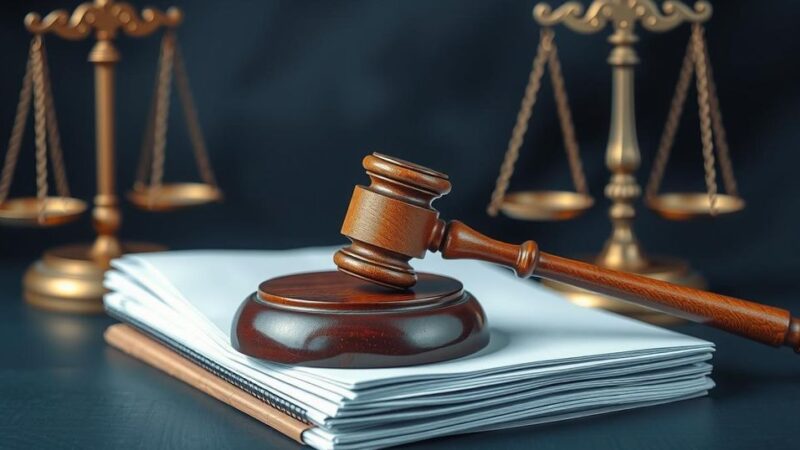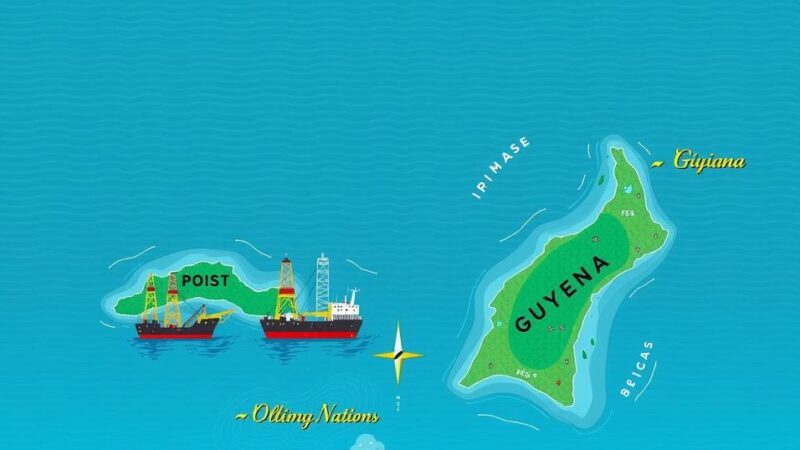Nigeria is facing significant tensions following President Bola Tinubu’s declaration of a state of emergency in Rivers State. The suspension of the governor and other officials has triggered debates about the country’s commitment to democracy and whether it is veering towards military rule, similar to regimes in Niger, Mali, and Burkina Faso. Legal experts criticize the president’s actions as undermining democratic governance, which may further destabilize the region and deter foreign investment.
Currently, Nigeria is experiencing heightened tensions following the announcement of a state of emergency in Rivers State by President Bola Tinubu. The suspension of Governor Sim Fubara and other officials has sparked debates on whether Nigeria is emulating military regimes in Niger, Mali, and Burkina Faso. Critics, including the Nigerian Bar Association, argue that such military actions undermine the democratic framework established in Nigeria.
Legal experts have expressed their discontent with the president’s unilateral actions, viewing the installation of Vice Admiral Ibok-Ete Ekwe Ibas as a move that disregards democratic principles. Many citizens believe that democratic governance should resolve political conflicts without resorting to militaristic measures. This situation raises questions about the integrity of Nigeria’s commitment to democracy and its stance against military coups in neighboring countries.
In recent months, the Nigerian government has condemned the military ousters of civilian leaders in Niger, Mali, and Burkina Faso, where juntas argue they are bettering the countries by reclaiming resource control from foreign entities. Despite this, Nigeria’s government remains unwavering in promoting civilian rule, despite challenges from juntas asserting that previous administrations collaborated with foreign interests at the expense of their nations.
The current political climate in Rivers State is precarious, with fears that emergency measures may exacerbate instability rather than promote peace. The president’s approach, perceived as combative and one-sided, has escalated tensions, indicating that governance may pause during this period.
The appointment of an administrator without a full cabinet raises concerns about effective governance, leaving the population uncertain about their leadership. There are also apprehensions regarding potential violence from groups dissatisfied with government actions, emphasizing the need to prevent a return to past crises involving militants disrupting oil production.
The Ijaw community, feeling marginalized in state leadership and governance, has voiced strong discontent over their lack of representation. Recent Supreme Court rulings complicate their financial situation further, fueling sentiments that they are being deprived of rightful shares in resource revenue. This historical exclusion highlights lingering discontent that could trigger unrest.
The timing of the emergency rule is critical, with Nigeria’s fragile economy still recovering from prior oil production disruptions. The government’s attempts to attract foreign investment are jeopardized by political instability, which deters potential investors. Reliable information and conducive conditions are essential for fostering investment and improving the economy. Consequently, Nigeria must address its political environment and reassure investors to stabilize and grow its economy in the future.
In summary, the current state of emergency in Rivers State raises significant concerns regarding Nigeria’s adherence to democratic principles and the potential implications for political stability. The backlash from legal experts and citizens indicates a pressing need for the government to reconsider its approach to internal conflicts. Furthermore, the marginalization of certain communities and the broader economic challenges warn that political disruptions could hinder Nigeria’s investment climate. To ensure sustainable progress, Nigeria must prioritize effective governance and promote a conducive environment for foreign investment.
Original Source: businessday.ng






